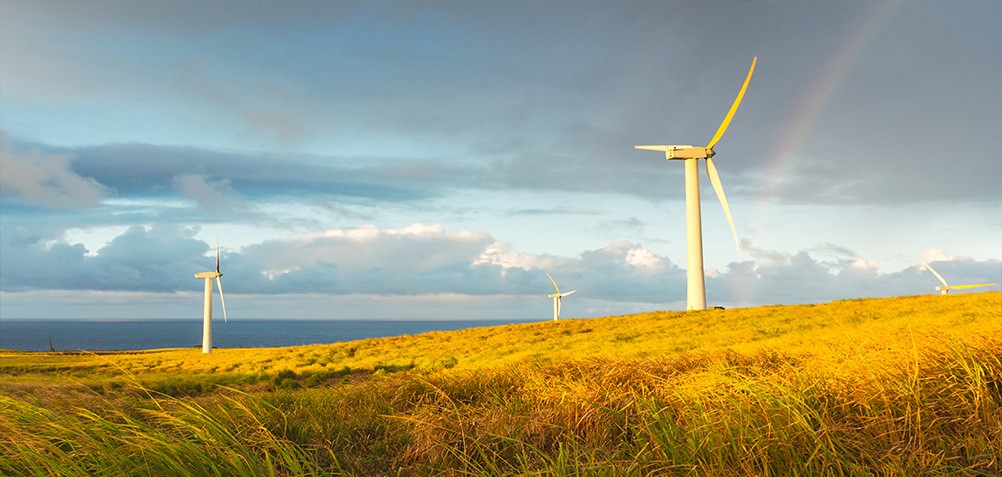
PPA in the USA
Once Upon a Time in American Clean Energy…
In Hollywood, big business is often depicted as the villain. From Avatar to the Jurassic World series, there is a recurring theme, big business freed from the shackles of government makes for a terrible environmental impact. In some films the answer to the corporate malpractice is the government, who come in at the right moment to save the day.
The problem for the USA and other western countries in general that clean energy doesn’t read like a Hollywood script. National efforts in several countries are falling victim to increasing levels of legislative paralysis making it harder for renewable energy to receive the support it needs. For many proponents of renewables, it feels like initiatives are stuck reading the script of Groundhog Day.
Luckily renewable energy can rely on a different solution from Hollywood. Where a hero can’t be found, perhaps an anti-hero will do; enter big business, in 2018, American firms signed 60% of clean energy deals worldwide.
Why Clean Energy PPAs Make Commercial Sense
American firms are increasingly turning to PPAs (Power Purchase Agreement) to secure their clean energy needs. Whilst many firms will have a genuine commitment to environmental matters, the truth is that securing clean energy supply has significant benefits for corporate consumers. Beyond the obvious need for more energy for operations, there is a growing awareness of how a clean energy PPA can beneficial:
It’s important if you want investment; 8 in 10 investors in the USA give serious consideration to sustainability issues when investing. That rises to 9 in 10 investors when the investing decision is made by millennials. Investors are likely to back their convictions over financial trade-offs when considering a sustainable investment.
You make what you can sell; consumers are become more aware of the impact of their purchases. Many want to purchase more environmentally friendly services, where one firm has a well-publicised PPA they hold a clear competitive advantage over competitors that don’t.
Winning the talent war; numerous studies point to workers being motivated to work for and be retained by firms that take sustainability seriously. For many firms a clean energy PPA is a great expression of their commitment to their employees’ values.
Price; until recently a firms with a cost focus may have avoided clean energy, but 2018 and 2019 have started to see renewables compete and deliver cheaper energy than the alternative.
Clearly PPAs are also highly beneficial to developers and providers of renewable energy. The long-term stability allows for better investment decisions and potentially larger scale projects.
Which Companies Are Setting Up Clean Energy PPAs?
Traditionally the American market was driven by the tech sector, major players such as Microsoft, Facebook, Google and Amazon all have expanding energy needs meaning that they are consistently undertaking energy procurement. In 2018 Facebook alone did 2.6GW worth of deals.
Tech giants aren’t however a great example of the growth of the PPA sector, because in their case demand is driven by need. Instead a good place to look is the growth of PPA activity in sectors where major firms are transitioning away from fossil fuel derived energy and switching to clean energy.
In fact to look at the success of clean energy PPAs, is to consider how much it touches the American way of life. Few would argue that there are any more American activities than driving a car, having a beer and watching (American) football. In the last year all three activities have seen clean energy activity; Honda has agreed the largest automotive PPA in the USA (320mw), by 2021 brewer Anheuser-Busch will be entirely powered by renewable energy and Enel are supplying clean energy to Gillette Stadium home of the New England Patriots.
Although we gave politicians a hard time in the introduction to this article, there is a lot of good work taking place at city level in the USA. Los Angeles provides a great case study in civic use of PPAs; the Los Angeles Department of Water and Power's Board of Commissioners voted to approve power purchase agreements for close to 600 MW of solar and energy storage from a massive hybrid project in California's Central Valley. The 25-year PPA essentially funds construction of the Eland Solar and Storage Center, which L.A. Mayor Eric Garcetti's office touted as the largest solar and battery storage system in the U.S. The agreements are still subject to City Council approval.
What are the longer-term challenges to PPAs in the USA?
There are two long term challenges for PPAs in the USA. The first one will be availability; this is because the situation isn’t just about transitioning the power that is being used; it is about satisfying increasing demand. Outside of the USA, Denmark has experienced this problem with tech giants taking such a high proportion of new clean energy capacity that it has shut smaller firms out of buying renewable energy. The answer will be a complex mix of improved energy efficiency, increasing capacity and rules on access, the USA is a way off this problem, but it will encounter it at some stage.
The second problem is that renewable energy may become a victim of its own success. Earlier we discussed price as a factor in why clean energy’s appeal, however prices keep falling and firms will become increasingly reluctant to sign up to long term deals that fix prices for 10 or 20 years if those prices are likely to fall. The future may see the rise of shorter term PPAs and alternative contract structures in the direction of merchant power.
Despite the challenges, PPAs represent a great opportunity for clean energy in America. They will help to drive forward the necessary infrastructure to support the sectors growth and give it the stability to continue to compete with more environmentally harmful alternatives.
